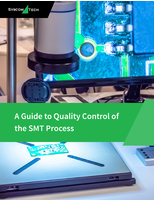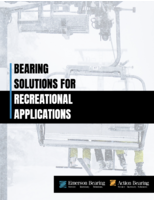Solid Waste Rule could save PCB industry millions.
Share:
Press Release Summary:
After decade of lobbying by IPC, rule by U.S. EPA on definition of solid waste could save U.S. PCB manufacturers millions of dollars and encourage recycling. Signed on October 7, 2008, EPA's rule removes regulatory barriers that inhibited recycling of manufacturing wastes, also known as secondary materials. In final rule, DSW was revised to exclude secondary materials from Resource Conservation and Recovery Act hazardous waste regulations if they are recycled according to specific requirements.
Original Press Release:
IPC'S Lobbying For New Definition of Solid Waste Rule Wins Big
PCB INDUSTRY COULD SAVE MILLIONS WITH NEW EPA RULE
BANNOCKBURN, Ill., USA, October 17, 2008 - After a decade of intense lobbying by IPC - Association Connecting Electronics Industries®, a new rule by the U.S. EPA on the definition of solid waste could save U.S. PCB manufacturers millions of dollars as well as encourage recycling.
"The IPC Environment, Health and Safety (EHS) Committee worked with IPC staff for years to obtain regulatory relief from the onerous RCRA hazardous waste rules. We're pleased to finally see these efforts yield some tangible results," explained Lee Wilmot, director of environmental health and safety at TTM and chairman of IPC's EHS Steering Committee. "The PCB industry and IPC members can certainly count this achievement as a benefit of membership. Congratulations to IPC and all committee members."
Signed on October 7, 2008, the EPA's new definition of solid waste (DSW) rule removes regulatory barriers that inhibited recycling of manufacturing wastes, known also as secondary materials. As a direct result of IPC comments, in the final rule, the DSW was revised to exclude secondary materials from the Resource Conservation and Recovery Act (RCRA) hazardous waste regulations if they're recycled according to specific requirements.
These requirements call for the generating facility to provide proper documentation of shipments of secondary materials and to answer a series of questions in order to ensure proper recycling of secondary materials. In earlier drafts of the DSW rule, secondary materials would be exempt from RCRA hazardous waste regulations only if the secondary material was recycled at a generation site. The recycling of copper from wastewater sludge exemplifies why off-site recycling is critical for the electronics industry to benefit from the new rule; sludge is recycled at smelting facilities, not at PCB manufacturing facilities.
Another change that IPC lobbied for, and is now contained in the new rule, allows for middlemen, or brokers, to aggregate amounts of secondary materials without becoming RCRA treatment, storage and disposal facilities (TSDFs). Small and medium-sized businesses do not produce enough secondary materials to deal directly with a smelting facility. By allowing a middleman to aggregate small amounts of secondary materials, small and medium-sized businesses can take advantage of the rule's exclusion and recycle their secondary materials outside of RCRA hazardous waste regulations.
In addition, on the basis of IPC comments to the draft rule, the final DSW rule allows for ordinary business records to be used as appropriate forms of record-keeping for shipping secondary materials. This allows records that are already produced to be used instead of requiring new additional ones.
For more information on IPC's lobbying activities related to the DSW rule, visit www.ipc.org/ehs or contact Stephanie Castorina, IPC manager of environment, health and safety, at stephaniecastorina@ipc.org or +1 703-522-0225, ext.110.
About IPC
IPC (www.IPC.org




